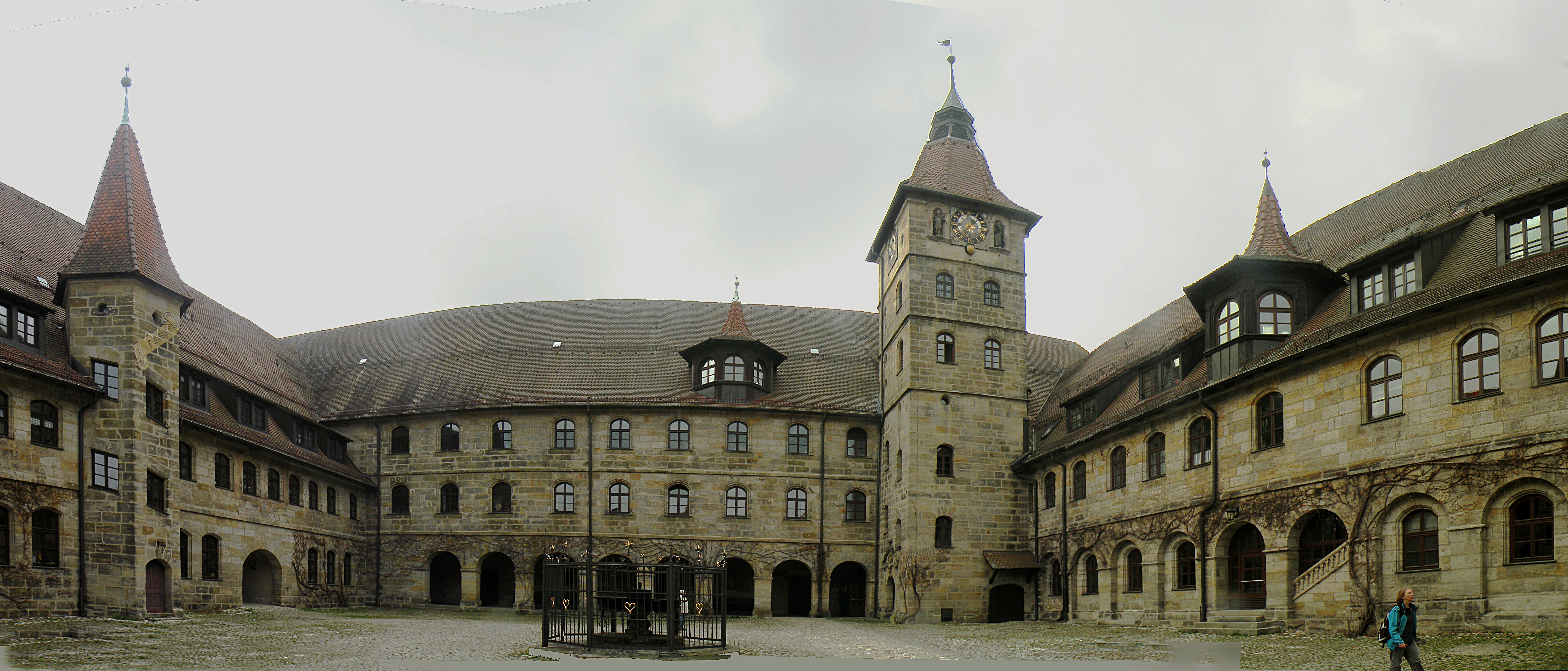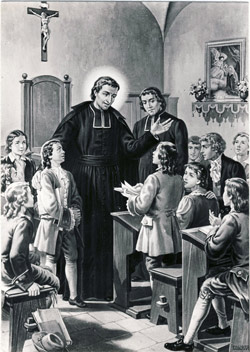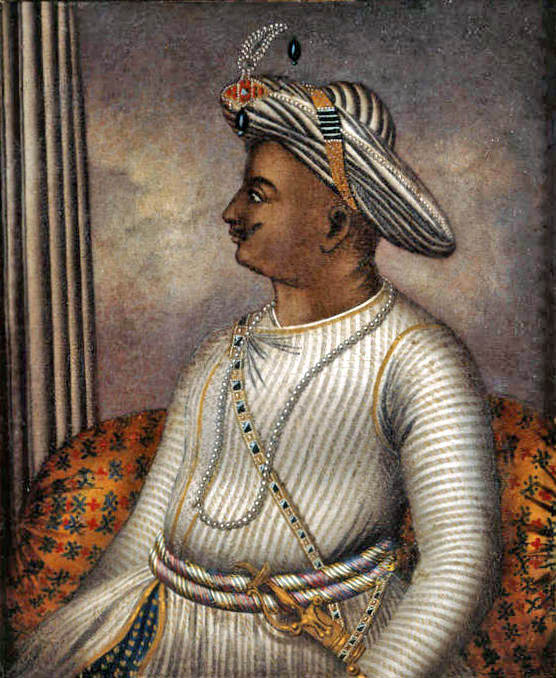|
Gustav Philipp Mörl
Gustav Philipp Mörl or Gustav Philipp Morl; Gustavus Philippus Moerl (26 December 1673 – 7 May 1750) was a German theologian, was born in Nuremberg 26 December 1673 and was educated first in the schools of his native place and then at the university in Altdorf, where he studied philosophy and philology from 1690 to 1692, when he was removed to Jena to study theology and the ancient languages. He traveled through Holland, and visited its most important universities. After his return home he was appointed assistant of the philosophic faculty at Halle, and in 1698 became professor and ecclesiastical inspector at Altdorf. He resigned this position in 1703, and was appointed dean of St. Sebald's church at Nuremberg. In 1706 he was appointed minister of the St. Aegidien church, and inspector of the gymnasium; in 1714 minister at St. Lawrence, in connection with which he had the supervision of the ecclesiastical seminary. In 1724 he was appointed minister of the church of St. Sebald, ... [...More Info...] [...Related Items...] OR: [Wikipedia] [Google] [Baidu] |
Nuremberg
Nuremberg (, ; ; in the local East Franconian dialect: ''Nämberch'' ) is the Franconia#Towns and cities, largest city in Franconia, the List of cities in Bavaria by population, second-largest city in the States of Germany, German state of Bavaria, and its 544,414 (2023) inhabitants make it the List of cities in Germany by population, 14th-largest city in Germany. Nuremberg sits on the Pegnitz (river), Pegnitz, which carries the name Regnitz from its confluence with the Rednitz in Fürth onwards (), and on the Rhine–Main–Danube Canal, that connects the North Sea to the Black Sea. Lying in the Bavarian Regierungsbezirk, administrative region of Middle Franconia, it is the largest city and unofficial capital of the entire cultural region of Franconia. The city is surrounded on three sides by the , a large forest, and in the north lies (''garlic land''), an extensive vegetable growing area and cultural landscape. The city forms a continuous conurbation with the neighbouring ... [...More Info...] [...Related Items...] OR: [Wikipedia] [Google] [Baidu] |
University Of Altdorf
The University of Altdorf () was a university in Altdorf bei Nürnberg, a small town outside the Free Imperial City of Nuremberg. It was founded in 1578 and received university privileges in 1622 and was closed in 1809 by Maximilian I Joseph of Bavaria. History In the period 1614–1618, Altdorf was briefly the centre of Socinianism in Germany. Encouraged by the connections of German Antitrinitarians to the Racovian Academy in Poland, German and Polish Socinians attempted to establish in Altdorf a similar Academy. Among the notable Socinian students was the 26-year-old Samuel Przypkowski. He was admitted as student on March 22, 1614, three weeks after Thomas Seget, but was expelled from Altdorf in 1616''The Polish Review'', Volume 11, 1966, p. 33. "Crypto-Socinianism" was widely suspected among the student body. In January 1617 the syndicus Jacob Weigel brought two students Joachim Peuschel and Johann Vogel back to Altdorf and the college made them give a public recantation. Thi ... [...More Info...] [...Related Items...] OR: [Wikipedia] [Google] [Baidu] |
Philology
Philology () is the study of language in Oral tradition, oral and writing, written historical sources. It is the intersection of textual criticism, literary criticism, history, and linguistics with strong ties to etymology. Philology is also defined as the study of literary texts and oral and written records, the establishment of their authentication, authenticity and their original form, and the determination of their meaning. A person who pursues this kind of study is known as a philologist. In older usage, especially British, philology is more general, covering comparative linguistics, comparative and historical linguistics. Classical philology studies classical languages. Classical philology principally originated from the Library of Pergamum and the Library of Alexandria around the fourth century BC, continued by Greeks and Romans throughout the Roman Empire, Roman and Byzantine Empire. It was eventually resumed by European scholars of the Renaissance humanism, Renaissance, ... [...More Info...] [...Related Items...] OR: [Wikipedia] [Google] [Baidu] |
Jena
Jena (; ) is a List of cities and towns in Germany, city in Germany and the second largest city in Thuringia. Together with the nearby cities of Erfurt and Weimar, it forms the central metropolitan area of Thuringia with approximately 500,000 inhabitants, while the city itself has a population of about 110,000. Jena is a centre of education and research. The University of Jena (formally the Friedrich Schiller University) was founded in 1558 and had 18,000 students in 2017 and the Ernst-Abbe-Hochschule Jena serves another 5,000 students. Furthermore, there are many institutes of the leading German research societies. Jena was first mentioned in 1182 and stayed a small town until the 19th century, when industry developed. For most of the 20th century, Jena was a world centre of the optical industry around companies such as Carl Zeiss AG, Carl Zeiss, Schott AG, Schott and Jenoptik (since 1990). As one of only a few medium-sized cities in Germany, it has some high-rise buildings in t ... [...More Info...] [...Related Items...] OR: [Wikipedia] [Google] [Baidu] |
Holland
Holland is a geographical regionG. Geerts & H. Heestermans, 1981, ''Groot Woordenboek der Nederlandse Taal. Deel I'', Van Dale Lexicografie, Utrecht, p 1105 and former provinces of the Netherlands, province on the western coast of the Netherlands. From the 10th to the 16th century, Holland proper was a unified political region within the Holy Roman Empire as a county ruled by the counts of Holland. By the 17th century, the province of Holland had risen to become a maritime and economic power, dominating the other provinces of the newly independent Dutch Republic. The area of the former County of Holland roughly coincides with the two current Provinces of the Netherlands, Dutch provinces of North Holland and South Holland into which it was divided, and which together include the Netherlands' three largest cities: the Capital of the Netherlands, capital city (Amsterdam), the home of Port of Rotterdam, Europe's largest port (Rotterdam), and the seat of government (The Hague). Hollan ... [...More Info...] [...Related Items...] OR: [Wikipedia] [Google] [Baidu] |
Halle (Saale)
Halle (Saale), or simply Halle (), is the second largest city of the States of Germany, German state of Saxony-Anhalt. It is the sixth-most populous city in the area of former East Germany after (East Berlin, East) Berlin, Leipzig, Dresden, Chemnitz and Magdeburg as well as the List of cities in Germany by population, 31st-largest city of Germany. With around 226,000 inhabitants, it is less populous than the state capital, Magdeburg. With Leipzig, the largest city of Saxony, Halle forms the polycentric metropolitan area, polycentric Leipzig-Halle conurbation. Leipzig/Halle Airport, Leipzig/Halle International Airport lies between the two cities, in Schkeuditz. The Leipzig-Halle conurbation is at the heart of the larger Central German Metropolitan Region. Halle has been known by many names throughout its history. From the 15th to the 17th century: ''Hall in Sachsen''. From then until the beginning of the 20th century, the name Halle an der Saale was used, and still remains a more ... [...More Info...] [...Related Items...] OR: [Wikipedia] [Google] [Baidu] |
Consistory (Protestantism)
In Protestant usage, a consistory designates certain ruling bodies in various churches.''Encyclopedia of Protestantism'', J. Gordon Melton (ed.), New York: Facts On File, c2005, p. 162. The meaning and the scope of functions varies strongly, also along the separating lines of the Protestant denominations and church bodies. History Starting in 1539 the term was used for a body taking over the jurisdiction in marital matters, and later also church discipline, so that Protestant consistories can be regarded as successors not to the papal consistory in Rome but rather to the courts of Roman Catholic bishops.''The encyclopedia of Protestantism'', Hans J. Hillerbrand (ed.), New York: Routledge, 2004, . In the Lutheran or Reformed states of imperial immediacy in the Holy Roman Empire episcopal offices were not staffed any more and the secular government assumed the function of the bishop (summepiscopate, summus episcopus), looked after by the consistories. Not all Protestant churches ... [...More Info...] [...Related Items...] OR: [Wikipedia] [Google] [Baidu] |
1673 Births
Events January–March * January 22 – Impersonator Mary Carleton is hanged at Newgate Prison in London, for multiple thefts and returning from penal transportation. * February 10 – Molière's '' comédie-ballet'' '' The Imaginary Invalid'' premiers in Paris. During the fourth performance, on February 17, the playwright, playing the title rôle, collapses on stage, dying soon after. * March 29 – Test Act: Roman Catholics and others who refuse to receive the sacrament of the Church of England cannot vote, hold public office, preach, teach, attend the universities or assemble for meetings in England. On June 12, the king's Catholic brother, James, Duke of York, is forced to resign the office of Lord High Admiral because of the Act. April–June * April 27 – '' Cadmus et Hermione'', the first opera written by Jean-Baptiste Lully, premières at the Paris Opera in France. * May 17 – In America, trader Louis Joliet and Jes ... [...More Info...] [...Related Items...] OR: [Wikipedia] [Google] [Baidu] |
1750 Deaths
Various sources, including the Intergovernmental Panel on Climate Change, use the year 1750 as a baseline year for the end of the pre-industrial era. 1750 is commemorated as the year that started the Industrial Revolution, although the underpinnings of the Industrial Revolution could have started earlier. Events January–March * January 13 – The Treaty of Madrid between Spain and Portugal authorizes a larger Brazil than had the Treaty of Tordesillas of 1494, which originally established the boundaries of the Portuguese and Spanish territories in South America. * January 24 – A fire in Istanbul destroys 10,000 homes. * February 15 – After Spain and Portugal agree that the Uruguay River will be the boundary line between the two kingdoms' territory in South America, the Spanish Governor orders the Jesuits to vacate seven Indian missions along the river (San Angel, San Nicolas, San Luis, San Lorenzo, San Miguel, San Juan and San Borja). * March 5 &nd ... [...More Info...] [...Related Items...] OR: [Wikipedia] [Google] [Baidu] |
Clergy From Nuremberg
Clergy are formal leaders within established religions. Their roles and functions vary in different religious traditions, but usually involve presiding over specific rituals and teaching their religion's doctrines and practices. Some of the terms used for individual clergy are clergyman, clergywoman, clergyperson, churchman, cleric, ecclesiastic, and vicegerent while clerk in holy orders has a long history but is rarely used. In Christianity, the specific names and roles of the clergy vary by Christian denomination, denomination and there is a wide range of formal and informal clergy positions, including deacons, Elder (Christianity), elders, priests, bishops, Cardinal (Catholic Church), cardinals, preachers, pastors, presbyters, Minister (Christianity), ministers, and the pope. In Islam, a religious leader is often known formally or informally as an imam, caliph, qadi, mufti, sheikh, mullah, muezzin, and ulema. In the Judaism, Jewish tradition, a religious leader is often a r ... [...More Info...] [...Related Items...] OR: [Wikipedia] [Google] [Baidu] |








